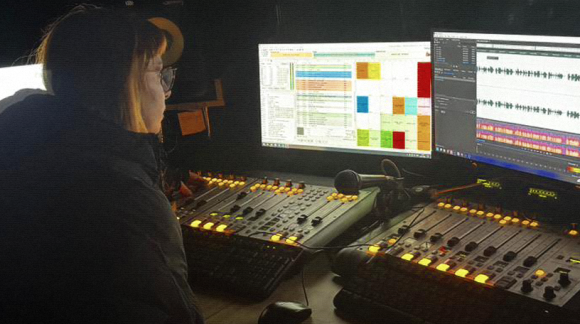Ukrainian authors Artem Chekh, Artem Chapeye, and Iryna Tsilyk refused to participate in The World Voices Festival in New York due to Russians being present there, writes chytomo.com.
Writer and director Iryna Tsilyk reported this on Facebook.
According to her, the festival’s organizers did not notify the Ukrainians that Russian authors would be present in advance.
“At the invitation stage, we clearly stated that we would be unable to participate if Russians were invited as well. I don’t see the point in explaining why, but two of the three Ukrainian participants are in the army (Artem Chekh, Artem Chapeye), and this factors into the impossibility of combining the incompatible, among other things. The organizers agreed with us on everything and promised that there would be no surprises,” Tsilyk said.
At first, the organizers of The World Voices Festival offered Chekh, Tsilyk and Chapeye to hold their event separately from the festival. The Ukrainian authors refused. Later, they learned that the Russian participants had cancelled their discussion.
In the end, the event “Ukrainian Writers at War” proceeded as planned, and the festival management apologized to the Ukrainians for the incident.
The discussion was moderated by Russian-born author Masha Gessen (identifies as non-binary, goes by they/them pronouns). After it was cancelled, Gessen stepped down as vice president of the PEN America board.
Gessen’s own attitude to the situation is laid out in Gal Beckerman’s article “Masha Gessen Resigns in Protest From PEN America Board. What happens when free-speech absolutists flinch” for The Atlantic. The author notes that Gessen had commented on the situation as follows:
“I could understand Ukrainians acting in this way. After all, the Ukrainians’ country had been invaded, hundreds of thousands of their fellow citizens brutally murdered—the desire to be cruel to Russians was perfectly comprehensible.”
“PEN America regrets the situation that ensued from the error. We have been and remain deeply committed to ensuring that the independent voices of both Ukrainian and Russian writers continue to be heard in the context of this conflict. We thank Masha Gessen for their support, dedication and friendship over the last 9 years,” reads PEN America’s statement.
The PEN Ukraine Executive Board also responded to the incident and stressed the organization’s stance regarding joint cultural events with Ukrainians and Russians once again. They stand for avoiding events that seek to unite representatives of Ukraine and Russia.
“As the war goes on, with countless displays of Russian cruelty and cynicism, we find it immoral and contrary to our values to imagine that writers or cultural figures from Ukraine and Russia can take part in the same event or share a platform. Doing so would create the illusion of openness to a “dialogue” between representatives of Ukraine and Russia before the Russian regime is defeated, its war criminals are brought to justice, and Russia faces the consequences of all the crimes it has committed in Ukraine,” they said.
PEN Ukraine noted that they sometimes hear unfavorable remarks regarding the stance they have taken.
“One Russian opposition leader said that he witnessed ‘outbursts of Nazism’ among Ukrainians. One magazine misleadingly wrote about how ‘cruel’ Ukrainians ‘blackmail’ and ‘issue ultimatums.’ Hearing this is outrageous. This war should not be reduced to a chess game or a series of cleverly-written articles in the press. It is about human lives – fragile, loving, warm, and irreplaceable human lives. Our responsibility to them, as well as our response to such situations, demands unwavering resolve,” the organization added.
As reported by IMI, the Estonia-based almanac “Russian-speaking Universe” (“Русскоязычная Вселенная”) published poems by the Ukrainian author from Donetsk, Iya Kiva, who currently lives in Lviv. Now Iya Kiva plans to sue the almanac for copyright infringement. Other Ukrainian authors who were included in the almanac without their consent also reacted to the publication: Dmytro Lazutkin, Pavlo Goldin and Elina Sventsytska.

